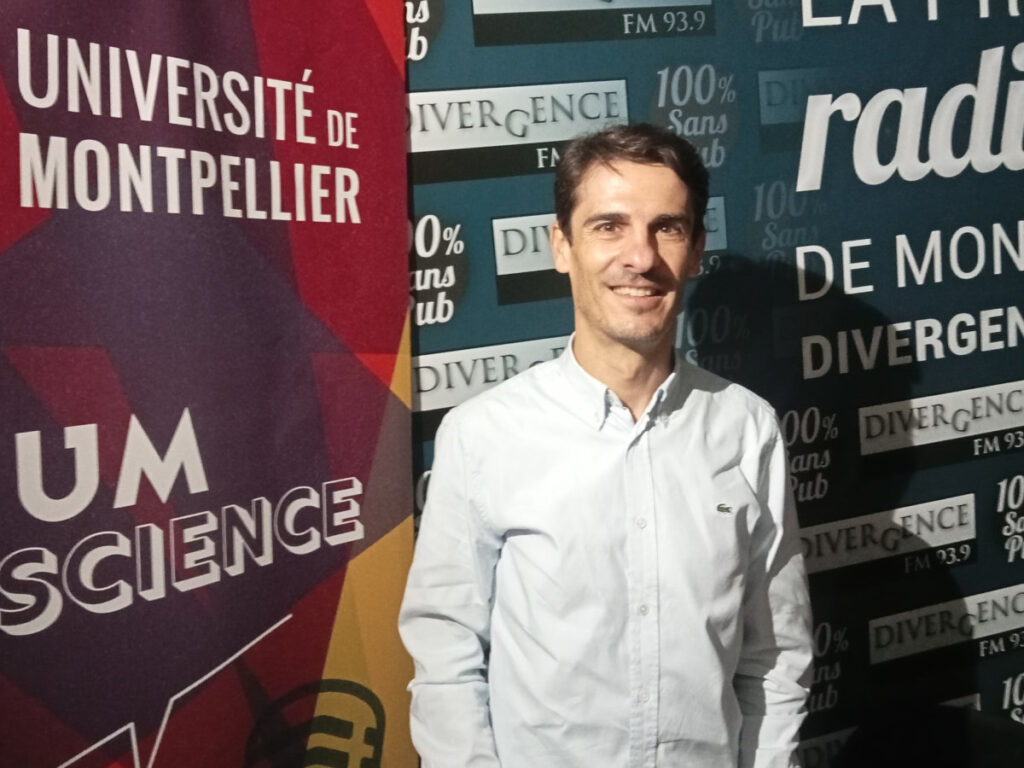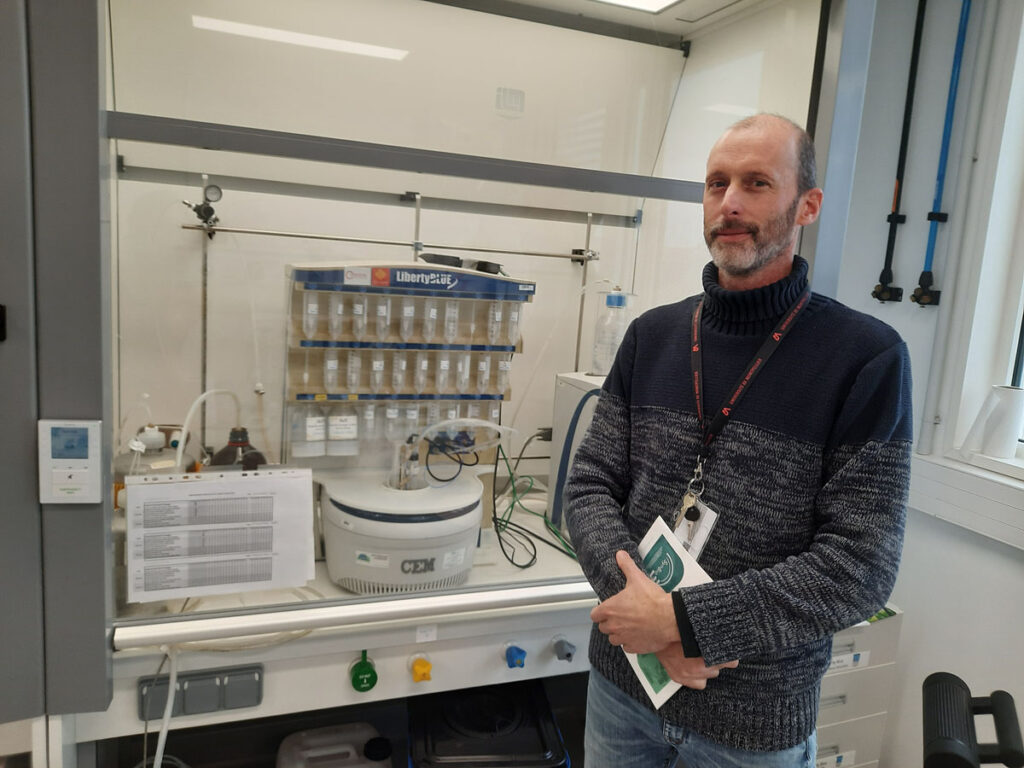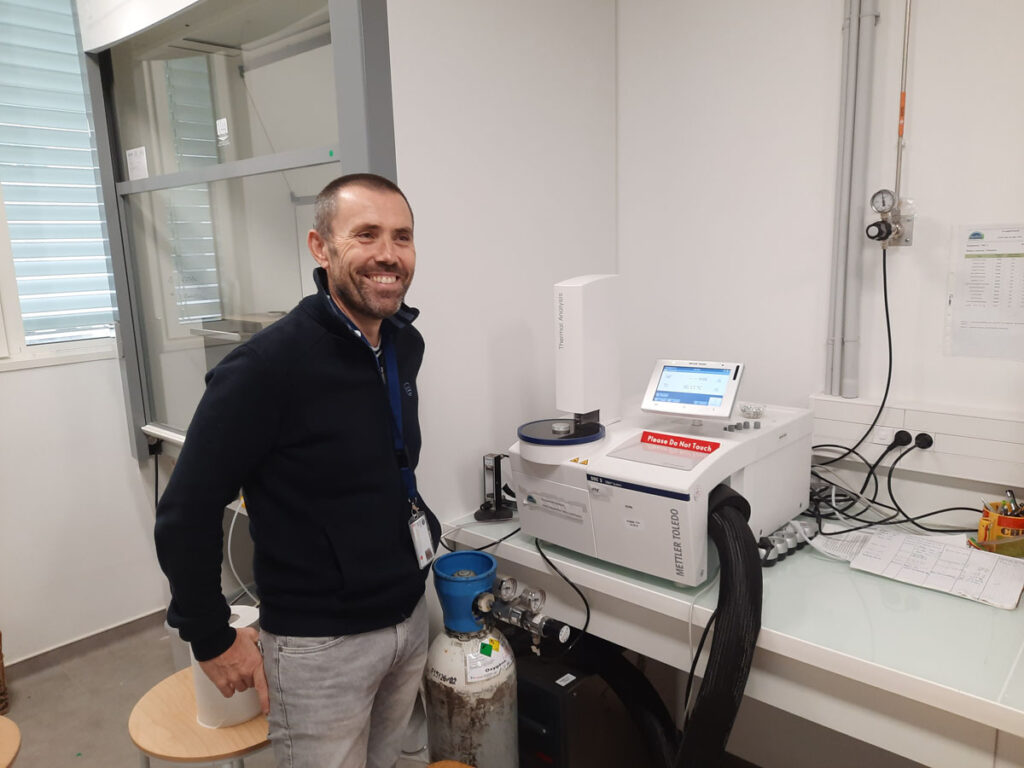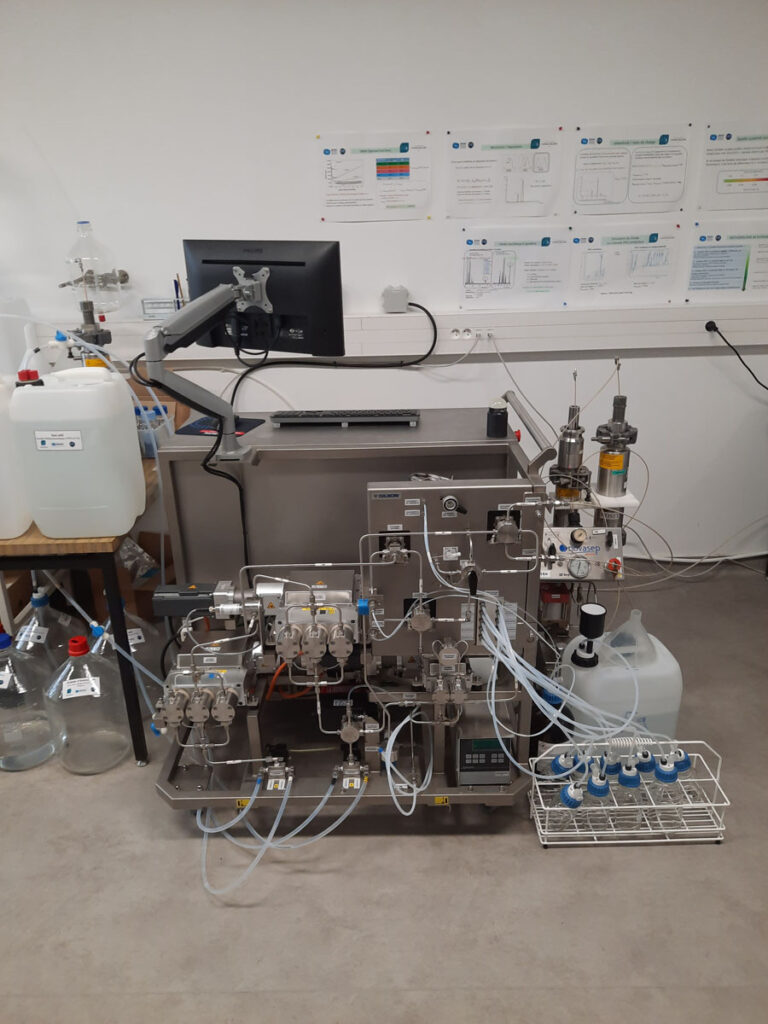Science at UM [S04-ep09]: Ensuring safe pain treatment
This week on A l’UM la science, Cyril Rivat, researcher at the Montpellier Institute of Neuroscience, presents promising new avenues for making opioid pain treatment safer. The report takes you to the Synbio 3 platform , and our guest in the last three minutes invites you to a conference on restrictive diets. A program broadcast every Wednesday on Divergence FM 93.9.

A headache, a toothache, back pain with the first frosts of winter, and we find ourselves rummaging through the medicine cabinet looking for the last paracetamol tablet. But what happens when the pain sets in and paracetamol and ibuprofen are no longer enough? Since the therapeutic arsenal of painkillers is not infinite, chronic pain often goes hand in hand with opioids. Of course, not everyone takes morphine, but other drugs have quietly made their way into our pharmacies: codeine and tramadol, which will be subject to secure prescription from December1. Why?
According to a survey conducted by the French addiction monitoring network, the number of addicts who identified tramadol as the primary substance that led to their addiction has increased 17-fold in 10 years. The mechanism is similar to that of other non-prescription drugs: taking them a little too often over a little too long a period of time, developing a tolerance to the substance while, paradoxically, sensitivity to pain increases. So the dose and frequency are also increased, and when that is no longer enough, some people move on to the next level: oxycodone, fentanyl, buprenorphine.
This story has cost the lives of more than 800,000 Americans in 25 years (Fentanyl, cocaine, "zombie drug": Opioids combined with stimulants continue to cause deaths in the United States, in The Conversation, November 12, 2024) and what is now known as the opioid crisis continues to accelerate, with 82,000 people estimated to have died between February 2021 and February 2022, according to the US Centers for Disease Control and Prevention.
So what can be done in the face of this crisis? Since we cannot decently leave victims of chronic pain suffering without a solution, the challenge would be to reverse or limit this phenomenon of opioid tolerance and hypersensitivity to pain, which leads to ever-increasing doses.
Our guest rose to this challenge. Cyril Rivat is a researcher at the Montpellier Institute of Neuroscience. On November 7, together with colleagues from the University of Montpellier, Inserm, and CNRS, among others, he published an article in Nature Communication entitled "Inhibition of FLT3 signaling suppresses opioid tolerance and hyperalgesia while preserving analgesia. " He talks to us about it in A l'UM la science.
In the second part of the program, we stay with the theme of medicine and take you to the Synbio 3 platform attached to the Max Mousseron Biomolecules Institute. Pascal Verdié explains how he and his colleagues on the peptides platform synthesize biomolecules and polymers of biological and pharmaceutical interest.



At the end of the program, Florian Bergohne, project manager at the Handiversité service, presents a public lecture to be held on November 21 on the Triolet campus between 12:15 p.m. and 1:30 p.m. on the topic of restrictive diets: what are the consequences and how can they be addressed?
At UM Science, you have the program, so let's get started!
Co-production: Divergence FM / University of Montpellier
Host: Lucie Lecherbonnier
Interview: Lucie Lecherbonnier / Aline Périault
Reporting and editing: Lucie Lecherbonnier / Aline Périault
Production: Tom Chevalier
Listen to the program “A l’UM la science” on Divergence FM 93.9
